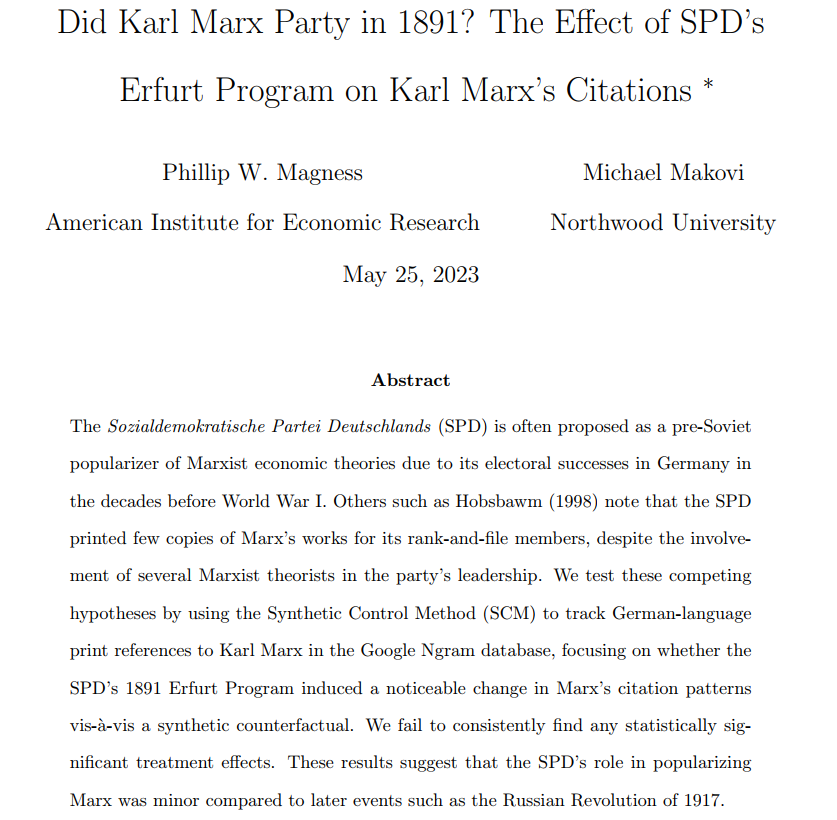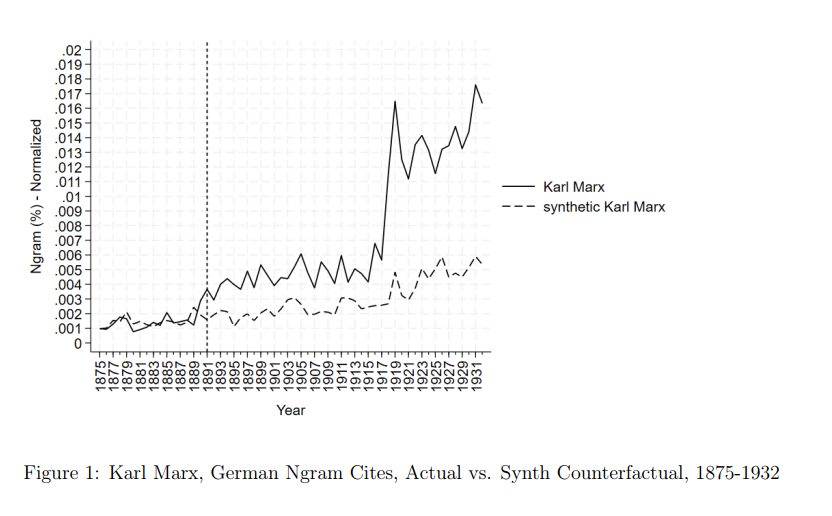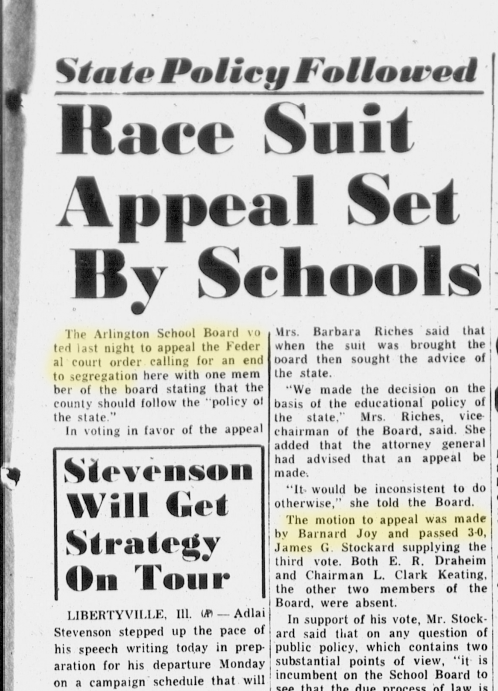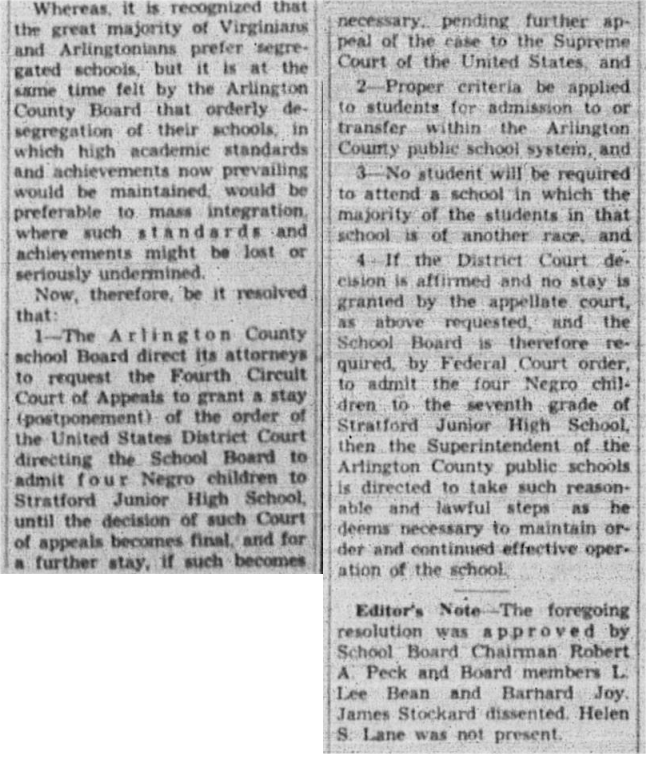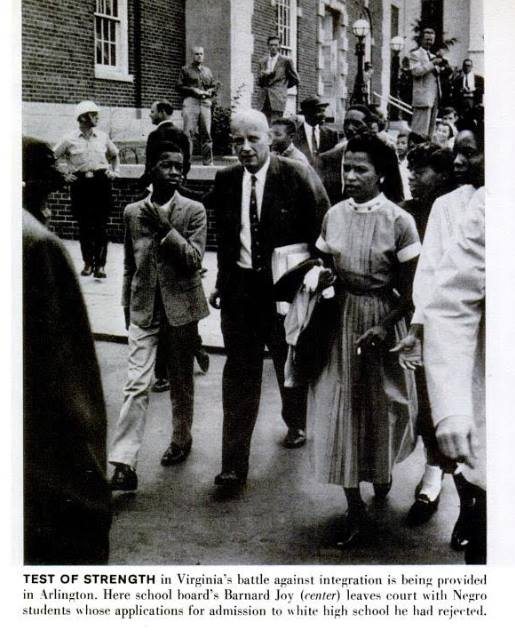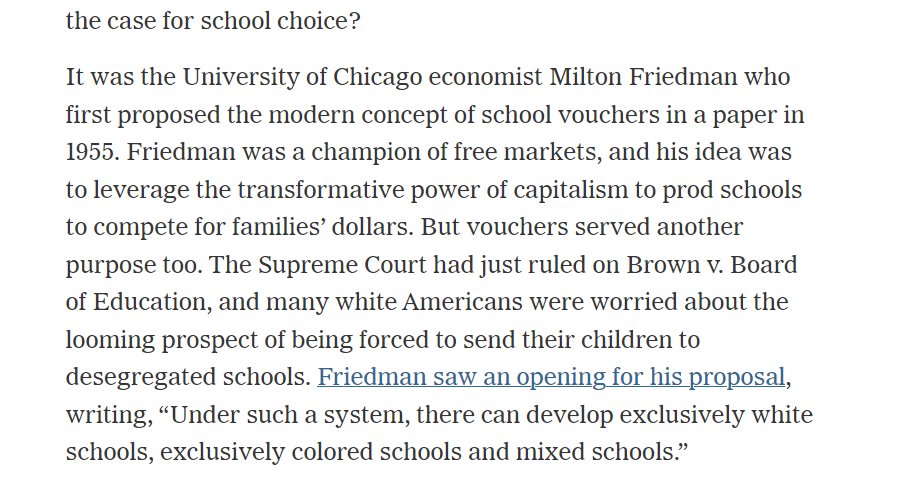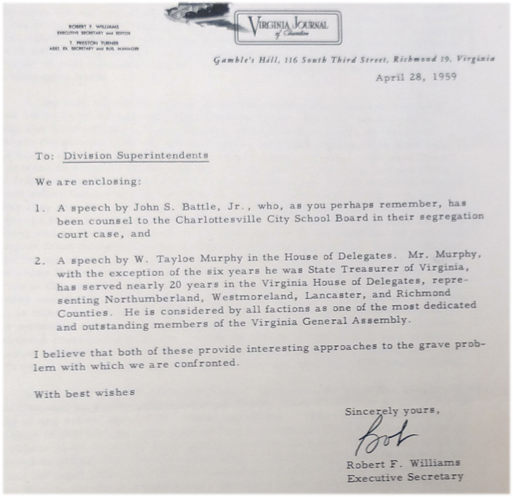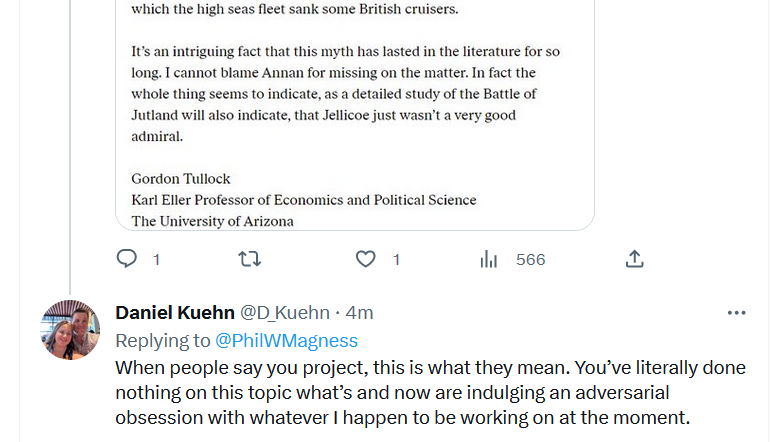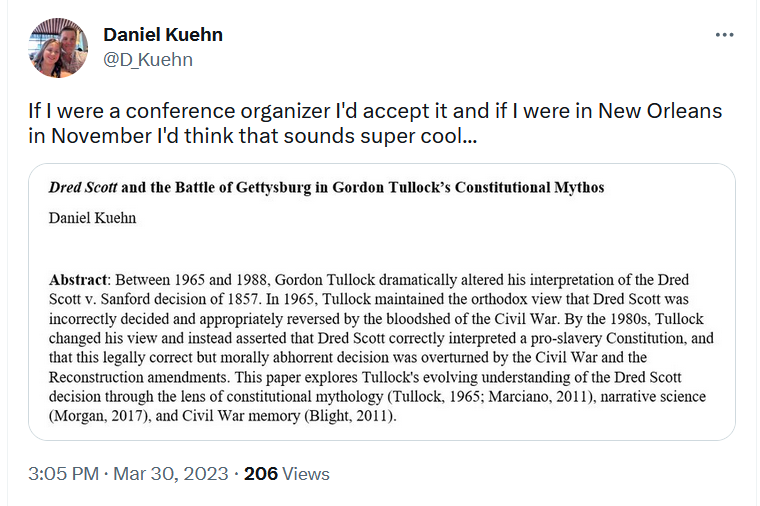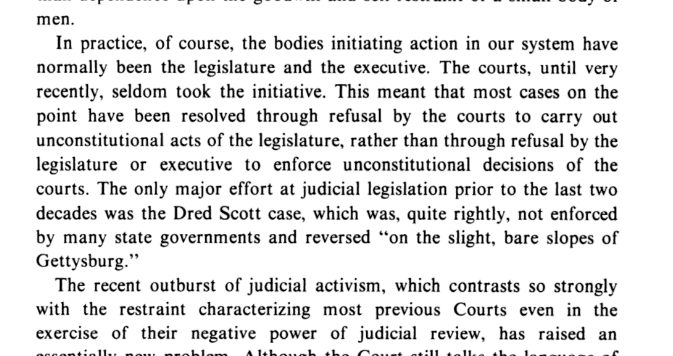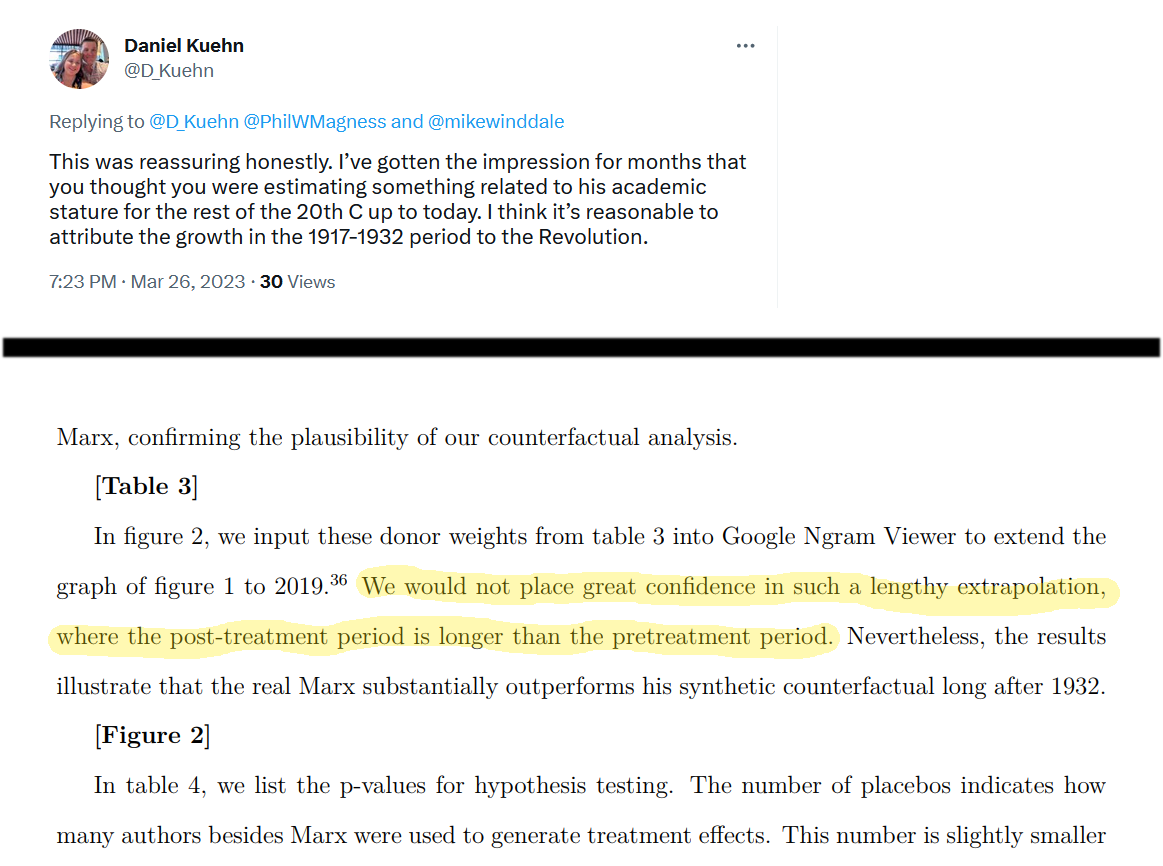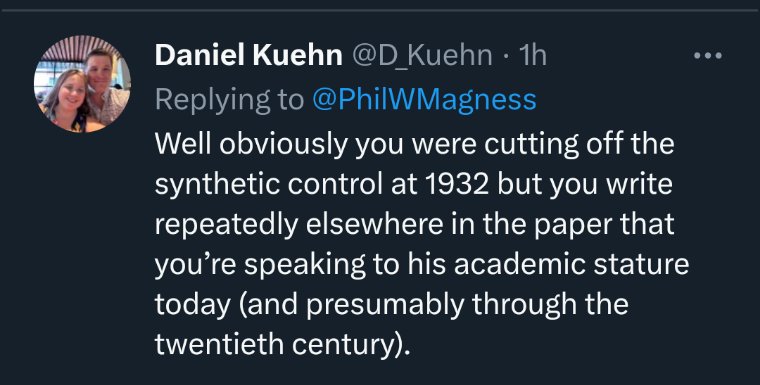Synthetic Karl Marx returns for another round!
In this new working paper, we investigate our critics' claim that the SPD popularized Marxism in Germany with its 1891 Erfurt Program, long before Lenin came along.
Turns out our critics were wrong.
papers.ssrn.com/sol3/papers.cf…
In this new working paper, we investigate our critics' claim that the SPD popularized Marxism in Germany with its 1891 Erfurt Program, long before Lenin came along.
Turns out our critics were wrong.
papers.ssrn.com/sol3/papers.cf…
Our main finding may be seen here. The Erfurt Program appears to give Marx's citations a very modest boost in 1891.
Except (1) it isn't statistically significant, and (2) it's dwarfed by 1917, which does past muster for significance.
Except (1) it isn't statistically significant, and (2) it's dwarfed by 1917, which does past muster for significance.
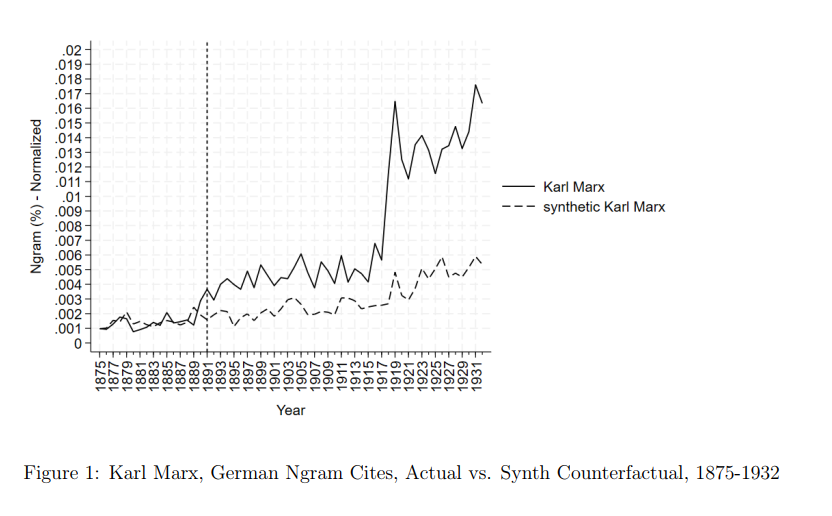
Some of our critics also claimed that Ngram isn't suitable for this test (although they never offered any compelling reason why). So we ran the same test using an independent database of scanned German newspapers. The result? Not even a visible boost from the SPD or Erfurt. 
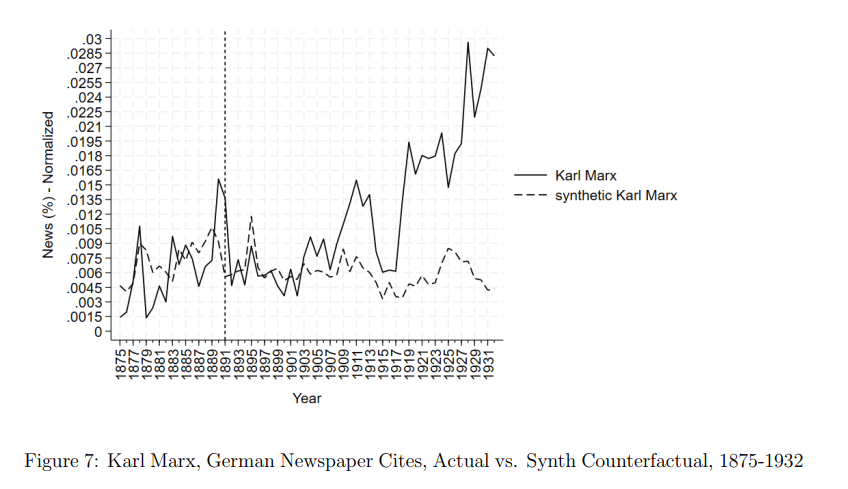
Together, these findings lend even more support to our original paper. It finds clear empirical evidence that the Bolshevik Revolution of 1917 took Marx, a relatively obscure figure in his lifetime and the decades after his death, and made him mainstream.
journals.uchicago.edu/doi/10.1086/72…
journals.uchicago.edu/doi/10.1086/72…
• • •
Missing some Tweet in this thread? You can try to
force a refresh

 Read on Twitter
Read on Twitter

